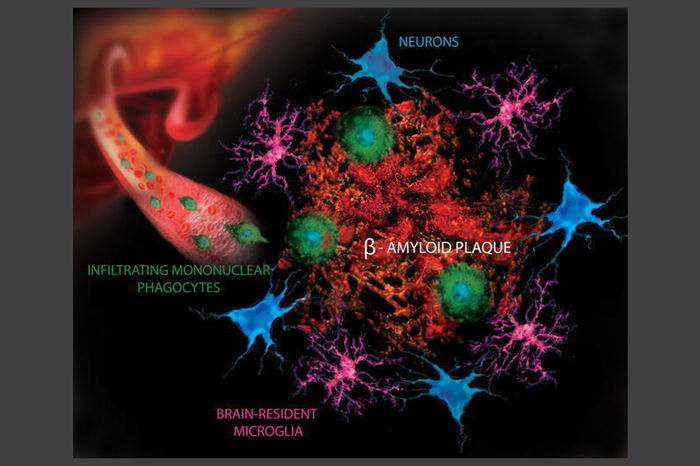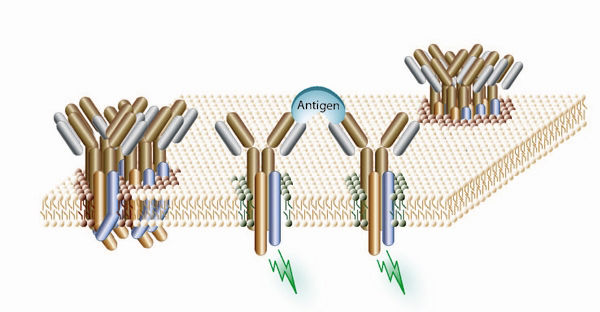Spin-off supports Dutch and Belgian health organizations in monitoring COVID-19
COVID 19 has shown how important comprehensive basic information on infection pathways, disease progression and symptoms are for both the estimation of the pandemic course and for long-term research. The CASE platform of the DFKI spin-off coneno, founded in 2016, supports the monitoring of infectious diseases through direct participation of the population.
CASE - a digital participatory citizen science platform - is currently being used in the Netherlands and Belgium, as well as in a LongCOVID study in the Netherlands. While currently being used primarily for studies in the health sector, other application scenarios are expected to follow.
CASE forms the basis of the country-specific instances of InfluenzaNet. It enables participating healthcare organisations to conduct extensive (long-term) studies and surveys with the help of their users, who can participate via a web app and, in turn, view results and find out about risk areas and disease outbreaks on a map. Additionally, they receive further information on diseases, such as symptoms, hygiene instructions, infection routes, etc. Thus, participation benefits both the study creators as well as the participants. One of the core functions distinguishing CASE from other platforms is the intelligent and dynamic approach: Study designers have great flexibility in defining when and how things change within a study dynamically. Consequently, the system is able to adapt to the context, to user behaviour and the answers given so far. Furthermore, CASE was developed based on the highest privacy and security standards.
Connections with various European health organisations were established within the EU-funded project "CIMPLEX", which was coordinated by the DFKI. The project focused on predicting and influencing the spread of disease and other contagion phenomena especially of common influenza diseases, as well as their social and economic effects.
With the outbreak of the coronavirus pandemic in 2019 and the strong interest of various European health organisations in monitoring disease spread as well as investigating disease symptoms and long-term consequences, COVID-19 has increasingly become the focus of InfluenzaNet and the network’s country-specific instances.
Currently CASE is planned to be implemented in additional countries. Furthermore, coneno is involved in the EU project VERDI (SARS-coV2 variants Evaluation in pRegnancy and paeDIatrics cohorts), which aims at evaluating the impact of SARS-coV2 variants on pregnant women and children. The project with 21 partners from twelve countries will start on November 1, 2021.
Successful AI transfer through spin-offs
Spin-offs are a key factor for the successful transfer of promising technologies, research results and know-how to industry and society. Since 1988, DFKI has been encouraging ambitious researchers to set up their own companies and actively supporting them in doing so. Thus, 99 spin-offs with more than 2500 jobs have emerged from DFKI so far. More than half of them are still active as independent companies. Many others have been taken over by established companies and enrich their product portfolios with innovative AI technologies from DFKI.
Most read news
Organizations
Other news from the department science

Get the life science industry in your inbox
By submitting this form you agree that LUMITOS AG will send you the newsletter(s) selected above by email. Your data will not be passed on to third parties. Your data will be stored and processed in accordance with our data protection regulations. LUMITOS may contact you by email for the purpose of advertising or market and opinion surveys. You can revoke your consent at any time without giving reasons to LUMITOS AG, Ernst-Augustin-Str. 2, 12489 Berlin, Germany or by e-mail at revoke@lumitos.com with effect for the future. In addition, each email contains a link to unsubscribe from the corresponding newsletter.
Most read news
More news from our other portals
Something is happening in the life science industry ...
This is what true pioneering spirit looks like: Plenty of innovative start-ups are bringing fresh ideas, lifeblood and entrepreneurial spirit to change tomorrow's world for the better. Immerse yourself in the world of these young companies and take the opportunity to get in touch with the founders.
Last viewed contents

Could leaky blood vessels in the brain be a culprit in Alzheimer’s disease? - A promising new approach to treating Alzheimer’s disease and other dementias
Phase 2a Study of HIV-1 Investigational Maturation Inhibitor - Demonstration of positive results for therapy designed to attack virus in a new way






















































